Well Women

How does stress management affect women's well-being ?
Stress management plays a crucial role in women's well-being, affecting their physical, mental, and emotional health. By managing stress, women can improve their immunity, sleep quality, and reduce the risk of chronic diseases. It also helps in improving mood, concentration, and reducing anxiety and depression. Stress management can lead to improved relationships, self-esteem, and increased resilience. Overall, it is essential for women's well-being and can lead to a happier and healthier life.

How often should a woman have a well-woman exam ?
A well-woman exam is crucial for maintaining good health and preventing diseases. Regular exams can detect abnormalities, early signs of cancer, and monitor reproductive health. The frequency of these exams depends on age, medical history, and risk factors. Women under 30 should have a Pap smear every three years, while those between 30 and 65 should have a combination of Pap smear and HPV test every five years. Women over 65 may consider stopping routine Pap smears after discussing with a healthcare provider. In addition to regular well-woman exams, women should also perform breast self-exams, get mammograms, and get tested for STIs regularly. By following these guidelines, women can ensure that they stay healthy and catch any potential issues early on.

What is the impact of social media on women's mental well-being ?
Social media has become an integral part of our daily lives, and it has both positive and negative impacts on women's mental well-being. In this article, we will discuss the various ways in which social media affects women's mental health. ### Negative Impacts: #### 1. **Comparison and Jealousy** One of the most significant negative impacts of social media on women's mental well-being is the constant comparison and jealousy that arises from seeing other people's highlight reels. Women often compare themselves to others on social media, leading to feelings of inadequacy and low self-esteem. This can result in anxiety, depression, and even eating disorders. #### 2. **Cyberbullying and Harassment** Social media platforms are also notorious for cyberbullying and harassment, particularly towards women. Online harassment can take many forms, including trolling, stalking, sexual harassment, and doxxing. These actions can have severe consequences on a woman's mental health, leading to trauma, anxiety, and depression. #### 3. **Addiction and Time Management** Social media addiction is another issue that affects women's mental well-being. Spending excessive time on social media can lead to procrastination, reduced productivity, and poor time management skills. This can cause stress, anxiety, and feelings of guilt, ultimately affecting a woman's overall mental health. #### 4. **Body Image Issues** Social media is flooded with images of perfect bodies and beauty standards, which can negatively impact a woman's body image. Constant exposure to these unrealistic beauty standards can lead to body dysmorphia, eating disorders, and low self-esteem. ### Positive Impacts: Despite the negative impacts, social media also has some positive effects on women's mental well-being. #### 1. **Support and Community** Social media provides a platform for women to connect with like-minded individuals and form supportive communities. These online communities can offer emotional support, advice, and encouragement, helping women cope with various issues they face in their personal and professional lives. #### 2. **Education and Awareness** Social media is an excellent source of information and education on various topics related to women's health, such as menstrual hygiene, reproductive rights, and breast cancer awareness. This increased awareness can empower women to make informed decisions about their health and well-being. #### 3. **Self-expression and Creativity** Social media platforms provide women with an opportunity to express themselves creatively through writing, photography, art, or other forms of content creation. This creative outlet can serve as a therapeutic tool for women to cope with stress, anxiety, or depression. #### 4. **Career Opportunities** Social media has opened up numerous career opportunities for women in fields such as digital marketing, content creation, and influencer marketing. These opportunities allow women to pursue their passions while maintaining flexible work schedules that accommodate their personal lives. In conclusion, social media has both positive and negative impacts on women's mental well-being. While it can lead to comparison, jealousy, cyberbullying, addiction, and body image issues, it also provides support, education, self-expression, and career opportunities. It is essential for women to be aware of these impacts and use social media mindfully to maintain their mental health and well-being.

What are the impacts of climate change on women's health and well-being ?
Climate change is a global issue that affects everyone, but its impacts are not distributed equally across all populations. Women are often disproportionately affected by climate change due to their roles in society and their biological differences from men. This essay discusses the various ways in which climate change can have negative impacts on women's health and well-being, including extreme weather events, food security and nutrition, water scarcity, reproductive health, and mental health. It is essential that we take action to mitigate the effects of climate change and ensure that all people, regardless of gender, can live healthy and fulfilling lives.

What are the common fertility issues faced by women ?
Fertility issues can be a sensitive and complex topic for many women. There are several common fertility problems that women may face, which can impact their ability to conceive and carry a pregnancy to term. These include ovulation disorders, endometriosis, uterine fibroids, tubal blockage, and age-related infertility. It's important for women who are struggling with fertility to seek medical advice and explore treatment options that best suit their individual needs and circumstances.
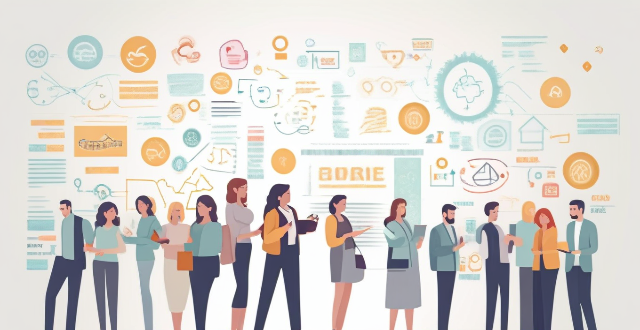
How can women build a diversified portfolio to minimize risks and maximize returns ?
The article provides a comprehensive guide on how women can build a diversified portfolio to minimize risks and maximize returns in the stock market. It emphasizes the importance of education, starting early, setting clear goals, diversifying investments across different asset classes, industries, and geographic regions, rebalancing regularly, and considering professional advice when needed. By following these tips, women can create a strong foundation for long-term financial success.
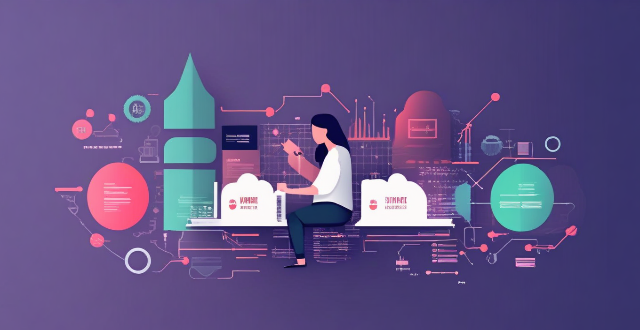
How do women-specific NGOs measure their impact on reducing poverty and inequality ?
This article explores how women-specific NGOs measure their impact on reducing poverty and inequality by focusing on key metrics such as economic empowerment, education and skill development, health and well-being, and gender equality and empowerment. It also highlights successful NGOs like Women's World Banking, Room to Read, and International Planned Parenthood Federation (IPPF) that use data collection tools to track progress towards their goals.

How does work-life balance impact women's physical health and well-being ?
The article discusses the impact of work-life balance on women's physical health and well-being, highlighting the following key points: 1. **Stress and Mental Health**: Work-life imbalance can lead to chronic stress, weakening the immune system and increasing the risk of mental health issues like anxiety and depression, which in turn can cause physical health problems. 2. **Physical Health**: An unbalanced lifestyle often results in a sedentary lifestyle and poor eating habits, leading to weight gain, obesity, and an increased risk of chronic diseases. 3. **Reproductive Health**: Excessive stress and unhealthy lifestyle habits can affect women's reproductive health, causing menstrual irregularities, infertility, and complications during pregnancy. 4. **Quality of Life**: Work-life imbalance can significantly impact a woman's quality of life, leading to feelings of dissatisfaction, reduced productivity, and strained relationships. Maintaining a work-life balance is crucial for ensuring that women's physical health and overall well-being are not compromised.

How can counseling help women dealing with infertility-related stress ?
Counseling is crucial for women dealing with infertility-related stress. It helps identify emotional distress, address mental health concerns, build resilience and coping strategies, navigate medical treatment options, and foster hope and healing. By providing emotional support and promoting self-care practices, counseling empowers women to face the challenges of infertility with strength and courage.
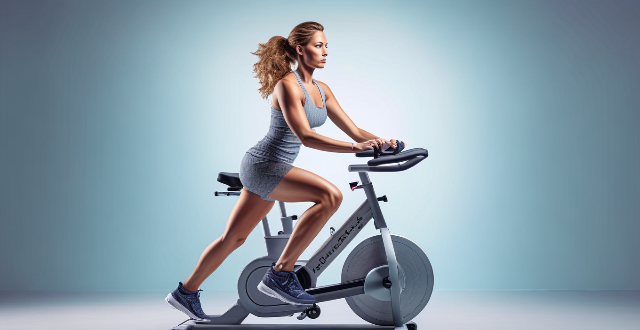
How can I create a fitness plan specifically for women ?
Creating a fitness plan for women involves understanding their unique physical and physiological needs. Tips include setting realistic goals, incorporating strength training and cardiovascular exercises, considering hormonal cycles, staying hydrated and fueling the body properly, and seeking professional guidance when needed. By following these tips, women can achieve their fitness goals and improve their overall health and well-being.

How does climate change disproportionately affect women in developing countries ?
Climate change disproportionately affects women in developing countries due to socio-economic factors, cultural norms, and division of labor. Impacts include reproductive health issues, nutritional deficiencies, loss of traditional occupations, increased workload, water scarcity, and energy poverty. Adaptation and mitigation efforts should involve women in decision-making and build their capacities. Gender-sensitive policies and interventions are needed to address these challenges and promote a more equitable future.

How can I get involved with women-focused charity work locally or internationally ?
Involving in women-focused charity work is a meaningful way to promote gender equality and empower women. This guide provides tips on how to get involved locally and internationally, including researching organizations, volunteering time, donating money or resources, attending events and fundraisers, fundraising for international organizations, participating in online campaigns, and traveling abroad to support women's issues. Additionally, it emphasizes the importance of being open-minded, building relationships, staying informed, and evaluating your impact to make the most of your participation.

What role do women play in addressing climate change ?
Women's Role in Addressing Climate Change: Women play a crucial role in addressing climate change through leadership and advocacy, innovative solutions, community engagement and education, and promoting gender equality and climate justice. They have led international negotiations, founded organizations dedicated to climate action, developed new technologies and business models, engaged in activities such as tree planting and waste reduction, and advocated for gender equality in decision-making processes. Women's contributions are essential to achieving a sustainable future for all.

How can women maintain healthy boundaries in their relationships ?
Maintaining healthy boundaries in relationships is essential for women's well-being. Strategies include identifying personal limits, clear communication, setting boundaries in friendships, family, workplace, and romantic relationships. Dealing with boundary violations involves confrontation, consequences, and seeking support. Self-care through recharging, reflection, and adapting to growth is also crucial. By understanding and applying these strategies, women can create balanced and respectful relationships that prioritize their individuality and well-being.

How can women effectively manage their wealth ?
Managing wealth is crucial for women to achieve financial security. Tips include setting SMART financial goals, creating a budget, building an emergency fund, investing wisely, prioritizing retirement savings, and seeking professional advice. By following these steps, women can effectively manage their wealth and achieve their financial goals.

What regular health check-ups should women prioritize ?
As women, prioritizing regular health check-ups is crucial for maintaining good health and preventing potential health issues. Key components of the annual wellness visit include medical history review, physical examination, vaccination updates, and screenings such as mammograms and colonoscopies. Mammograms are essential for breast cancer screening in women over the age of 40, while Pap tests and HPV tests are used to screen for cervical cancer. Colorectal cancer screening is important for both men and women starting at age 50. By focusing on these regular health check-ups, women can take proactive steps towards a healthier life.

How can women protect themselves from pickpockets and theft while traveling ?
Traveling, especially for women, comes with risks such as pickpocketing and theft. To protect themselves, women should stay alert, dress appropriately, secure their belongings, stay connected, be cautious about trusting strangers, and choose safe accommodations. By following these guidelines, they can reduce their risk of falling victim to theft and enjoy a safe journey.
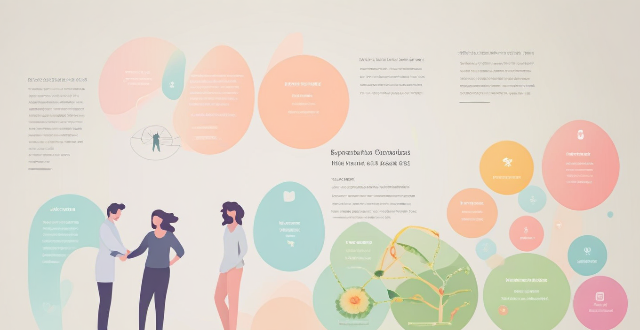
What are some tips for women to manage work-life balance effectively ?
This topic provides valuable insights and actionable strategies for women aiming to achieve a healthier work-life balance. The suggestions range from practical time management tips to self-care practices, emphasizing the importance of setting boundaries, delegating responsibilities, and leveraging technology. By prioritizing personal well-being and embracing flexibility, women can enhance their productivity and overall life satisfaction. The text underscores the necessity of building a support network and regularly reflecting on one's approach to balance, highlighting that achieving an ideal work-life equilibrium is a dynamic and ongoing process.

How can we support women who have experienced trauma or abuse ?
Supporting women who have experienced trauma or abuse requires a comprehensive approach that addresses their mental, emotional, and physical well-being. Key ways to support these women include providing safe spaces, offering emotional support, providing practical assistance, and promoting healing and recovery. By creating a safe environment, listening without judgment, respecting privacy and boundaries, showing empathy and compassion, encouraging self-care, connecting with others, assisting with legal issues, providing financial assistance, offering resources, encouraging professional help, promoting healthy coping mechanisms, and celebrating milestones, we can help these women navigate their difficult journeys towards healing and empowerment.

How can women protect themselves from gender-based discrimination and harassment ?
Gender-based discrimination and harassment are pervasive issues that women face in various settings, including the workplace, education, and public spaces. To protect themselves, women can take several proactive steps to ensure their safety and well-being, including educating themselves about their rights and forms of harassment, creating a supportive network, taking preventive measures, reporting incidents promptly, seeking legal advice and counseling services when needed, and advocating for change by raising awareness and participating in policy making. By employing these strategies, women can better protect themselves from gender-based discrimination and harassment while also contributing to a broader cultural shift towards equality and respect.

What are the best practices for women's health maintenance ?
The text outlines best practices for women's health maintenance, emphasizing regular check-ups and screenings, healthy eating habits, physical activity, mental health care, reproductive health, preventive measures, and lifestyle choices. The article suggests annual wellness visits, pap smears and HPV tests, mammograms, breast self-exams, a balanced diet with plenty of water and limited processed foods, regular exercise including strength training and flexibility exercises, stress management, adequate sleep, social support, professional help for mental health concerns, discussion of birth control options, menstrual hygiene, pregnancy care, staying up to date on immunizations, sun protection, safe sex practices, limiting alcohol, avoiding smoking, and steering clear of illicit drugs. These recommendations are intended to help women maintain their health and wellbeing throughout their lives, with the caveat that individual circumstances and needs should guide healthcare decisions in conjunction with professional advice.

What role does flexible working play in helping women achieve a better work-life balance ?
Flexible Working, Women, Work-Life Balance

Is it safe for women to use ride-sharing services like Uber when traveling ?
Ride-sharing services like Uber have become increasingly popular among travelers due to their convenience and affordability. However, safety concerns have been raised, especially for women who may be more vulnerable to certain risks. In this response, we will explore the safety aspects of using ride-sharing services for female travelers. Ride-sharing services like Uber have implemented several safety features to ensure the well-being of their passengers. These include driver screening, GPS tracking, in-app communication, and emergency assistance. Women can further mitigate potential risks by verifying the driver's identity, sharing trip details, choosing well-lit areas, and staying alert during the ride. Overall, ride-sharing services like Uber can be safe for women when traveling, provided that they exercise caution and utilize the safety features offered by these platforms. By following best practices such as verifying driver identity, sharing trip details, choosing well-lit areas, and staying alert during the ride, women can significantly reduce potential risks associated with using ride-sharing services. It is also essential to report any safety concerns to the appropriate authorities and the ride-sharing company to help improve overall safety standards for all users.

How can women overcome gender bias in the startup world ?
Gender bias is a pervasive issue in many industries, including the startup world. Women face unique challenges when it comes to funding, networking, and building their businesses. However, there are strategies that women can employ to overcome these obstacles and thrive in the startup world. Here are some tips: 1\. Build a Strong Network: Networking is crucial for any entrepreneur, but it's especially important for women who may not have as many natural connections in the industry. Attend industry events, join professional organizations, and connect with other entrepreneurs on social media. Make sure to diversify your network by seeking out people from different backgrounds and perspectives. 2\. Develop Your Skills: Take courses or attend workshops to develop your skills in areas such as finance, marketing, and management. This will not only make you a more well-rounded entrepreneur but also demonstrate your commitment to learning and growing. 3\. Be Confident and Assertive: Women are often socialized to be polite and deferential, which can sometimes hold them back in business settings. Practice being confident and assertive in meetings and negotiations. Remember that you deserve to be taken seriously and that your ideas and opinions are valuable. 4\. Seek Out Mentors and Advisors: Find mentors or advisors who can offer guidance and support as you navigate the startup world. Look for people who have experience in your industry and who share your values and goals. 5\. Leverage Your Strengths: Women often bring unique strengths to the table, such as empathy, collaboration, and creativity. Emphasize these qualities in your pitches and marketing materials, and don't be afraid to highlight how they set you apart from your competitors. 6\. Stay Persistent: Starting a business is hard work, and there will inevitably be setbacks along the way. Stay persistent and focused on your goals, even when faced with rejection or failure. Remember that every challenge is an opportunity to learn and grow. 7\. Advocate for Yourself and Others: Speak up about issues of gender bias and inequality whenever you see them. Use your platform to advocate for change within your industry and support other women who are facing similar challenges. By working together, we can create a more equitable and inclusive startup world for all entrepreneurs.

How does parenthood impact the career progression of women differently than men ?
In this article, we explore how parenthood affects women's careers differently than men's due to societal expectations and stereotypes, workplace policies and practices, and networking and mentorship opportunities. Women are often expected to be the primary caregivers for their children, leading to reduced work hours or time off work, which can result in a lack of opportunities for advancement or promotions as well as a loss of income and benefits. Workplace policies and practices can contribute to the different impact of parenthood on women's careers, with many workplaces having a "one-size-fits-all" approach to parental leave and flexible working arrangements that may not accommodate the needs of all employees. Networking and mentorship opportunities are essential for career progression but can be challenging for working parents, especially women who may miss out on these opportunities due to caring for their families. To address these issues, it is crucial for employers and society as a whole to recognize and support the unique challenges faced by working parents, particularly women, by implementing more flexible work arrangements, providing adequate parental leave policies, and promoting diversity and inclusion in the workplace.

What prenatal vitamins are recommended for women trying to conceive ?
Prenatal vitamins are crucial for women trying to conceive, as they provide the necessary nutrients for a healthy pregnancy and support the development of a growing fetus. Some recommended prenatal vitamins include folic acid, iron, calcium, vitamin D, and multivitamins with folic acid. By ensuring adequate intake of these essential nutrients, women can increase their chances of having a healthy pregnancy and a healthy baby.
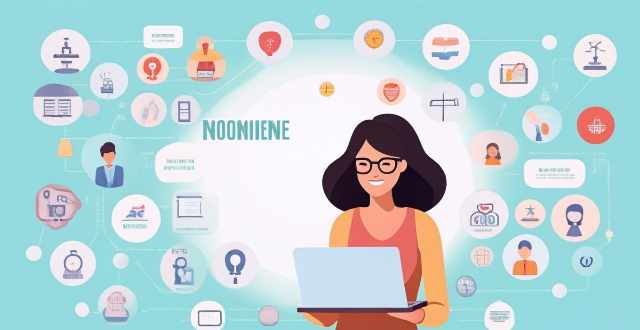
What is the status of women in STEM education and careers ?
The text provides a comprehensive overview of the status of women in STEM education and careers. It outlines key challenges and disparities faced by women at different levels of their academic and professional journeys, from undergraduate education to senior positions in academia and industry. The article also discusses barriers such as bias, stereotyping, workplace culture issues, and limited resources that contribute to these disparities. Initiatives aimed at improving the representation and advancement of women in STEM fields are highlighted, including educational programs, professional development opportunities, and policy changes. Despite progress, the need for continued efforts to achieve gender parity in STEM is emphasized.

In what ways does education empower women socially and politically ?
Education is crucial for women's empowerment, enabling them to challenge societal norms and contribute more fully to society. It fosters increased awareness, improved socioeconomic status, and enhanced social relationships. Education also leads to greater political participation, policy influence, and promotion of gender equality. Overall, education enriches society by improving the lives of women and contributing to a more equitable world.

Why is it important for women to have a solid understanding of financial planning and wealth management ?
The importance of financial planning and wealth management for women is underscored by the need for financial independence, empowerment, and long-term stability. Women face unique challenges such as longer life expectancies and potential career interruptions, making it crucial for them to be financially savvy. Understanding key areas like budgeting, investing, insurance, and retirement planning can help mitigate risks and ensure economic security. Financial literacy is not just about managing money but also about gaining confidence, independence, and the ability to lead a fulfilled life.